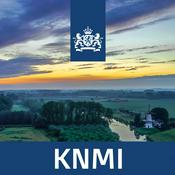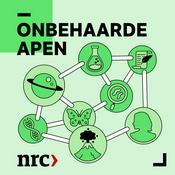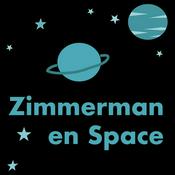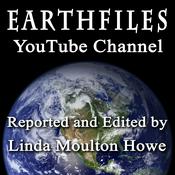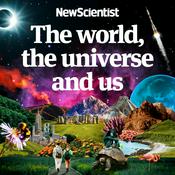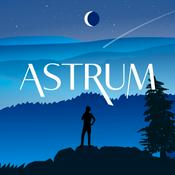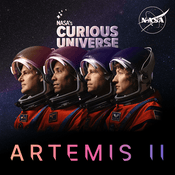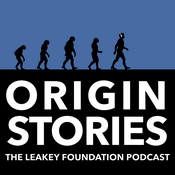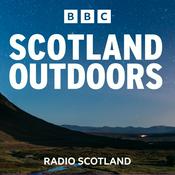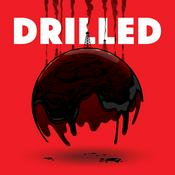117 afleveringen

Carina Hoorn on the Evolution of the Amazon Basin
24-12-2025 | 23 Min.
The Amazon Basin is the most biodiverse region on Earth, being the home of one in five of all bird species, one in five of all fish species, and over 40,000 plant species. In the podcast Carina Hoorn explains how the rise of the Andes and marine incursions drove an increase in biodiversity in the Early Miocene. This involved the arrival of fresh river-borne sediments from the eroding mountains and the diversification of aqueous environments caused by influxes of salt water during the marine incursions.Hoorn is an Associate Professor in the Institute for Biodiversity and Ecosystem Dynamics at the University of Amsterdam and Research Associate at the Negaunee Integrative Research Center, Earth Science Section, Field Museum of Natural History, Chicago.

Anat Shahar on What Makes a Planet Habitable
02-12-2025 | 26 Min.
Over 6,000 exoplanets have now been found, and the number is constantly rising. This has galvanized research into whether one of them might host life. Since all forms of life on Earth require liquid water, at least at some stage in their life cycle, it is natural to suppose that in order to be habitable, an exoplanet should also have liquid water. While much of the public discussion has focussed on constraining the so-called Goldilocks zone, i.e., not too hot nor too cold for liquid water to exist, an equally key issue is how a planet would get its water in the first place. In the podcast, Anat Shahar explains how her modeling and experiments predict that plenty of water would form as a result of chemical reactions between the hydrogen atmospheres observed on many exoplanets and the magma ocean with which planets initially form..Shahar is a Staff Scientist and Deputy for Research Advancement at the Earth and Planets Laboratory at the Carnegie Institution for Science in Washington, DC.

Keith Klepeis on How Plutons Form
12-11-2025 | 26 Min.
Plutons are bodies of igneous rock that crystallize from magma at depth below the Earth’s surface. But even though this magma never makes it to the surface, it still has to travel many kilometers up from its source near the base of the crust to the upper crust where plutons form. In the podcast, Keith Klepeis explains how it makes that journey and describes the shape of the resulting structures. Many of his findings come from one region in particular that provides an exceptional window into the origin, evolution, and structure of plutons – the Southern Fiordland region of New Zealand’s South Island.Klepeis is a Professor in the Department of Geography and Geosciences at the University of Vermont.

Tom Herring on High-Precision Geodesy
21-10-2025 | 36 Min.
There are three main types of geodetic measurement systems — satellite-based systems such as GPS, very long baseline interferometry (VLBI), and interferometric synthetic-aperture radar (InSAR). While each type of systems has its particular strengths, the cost of satellite-based receivers has plummeted. Millimeter-level accuracy will soon be incorporated into phones. This has broadened the kinds of geological questions we can now address with such systems. In the podcast, Tom Herring describes how these systems are giving us new insight into plate motions, slow and fast deformation associated with faults and earthquakes, the Earth’s rotation, as well as applications in civil engineering, such as dams and tall buildings, and agriculture.Herring is a pioneer in high-precision geodetic analytical methods and applications for satellite-based navigation systems to study the Earth’s surface. He is a Professor in the Earth, Atmospheric, and Planetary Sciences department at the Massachusetts Institute of Technology.

Jiří Žák on the Orogenies that Shaped Central Europe
06-10-2025 | 28 Min.
In this episode, Jiří Žák describes the two main orogenies whose remnants figure prominently in central European geology: the Cadomian orogeny that lasted from the late Neoproterozoic to the early Cambrian (c. 700 Ma to c. 425 Ma) and the Variscan orogeny that occurred in the late Paleozoic (c. 380 Ma to 280 Ma). The Cadomian took place on the northern margins of Gondwana, only later to rift and travel north to form what was to become Europe. The Variscan was caused by the collision of Gondwana with Laurussia in the final stages of the assembly of the supercontinent Pangea. Both orogenies have been heavily eroded, and we see their imprint in the form of metamorphic rocks, volcanic rocks, granites, and deformation structures. These are scattered across Europe, from southern Britain to eastern Europe.Žák has been studying the geology of central Europe for over 25 years using methods ranging from structural studies in the field to detrital zircon geochronology. He is a Professor in the Institute of Geology and Paleontology at Charles University in Prague.
Meer Wetenschap podcasts
Trending Wetenschap -podcasts
Over Geology Bites
Luister naar Geology Bites, De Universiteit van Nederland Podcast en vele andere podcasts van over de hele wereld met de radio.net-app

Ontvang de gratis radio.net app
- Zenders en podcasts om te bookmarken
- Streamen via Wi-Fi of Bluetooth
- Ondersteunt Carplay & Android Auto
- Veel andere app-functies
Ontvang de gratis radio.net app
- Zenders en podcasts om te bookmarken
- Streamen via Wi-Fi of Bluetooth
- Ondersteunt Carplay & Android Auto
- Veel andere app-functies


Geology Bites
download de app,
luisteren.




